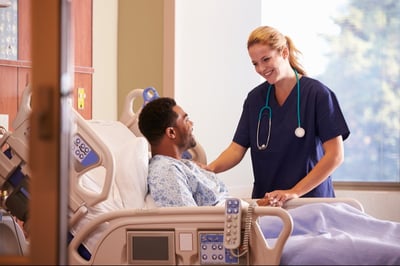
Comparing Screening Methods for Detection of Early-Stage Gastric Cancer in People with a CHD1 Genetic Mutation
Clinicaltrials.gov identifier:
NCT04535414
Prevention
Gastric cancer screening study for people with a CHD1 inherited mutation
Study Contact Information:
For additional information, please contact:
Jamie Kirkpatrick, R.N. by phone: 240-760-7533 or email: [email protected]
Principal Investigator: Jeremy L. Davis, M.D. by phone: 240-858-3731 or email: [email protected]
Comparing Screening Methods for Detection of Early-Stage Gastric Cancer in People with a CHD1 Genetic Mutation
About the Study
This study will compare a new technique of screening for a type of inherited gastric cancer known as diffuse hereditary gastric cancer (DHGC) to see if it can identify cancer better than the current recommended screening. Participants will be assigned by chance to one of two groups to receive screening by the current screening technique, called the Cambridge method, or the new screening technique, called the Bethesda protocol.
What the Study Involves
Participants will be assigned by chance to one of two groups.
- Group 1 will receive screening using the Bethesda Method.
- Group 2 will receive screening using Cambridge method.
Participants in both groups will:
- Have a physical exam
- Have an endoscopy while under general anesthesia
- Have a follow up visit in person or over the phone 14 days after the endoscopy,
- Give stool samples every 3-6 months for 12 months
Some participants may have a second endoscopy 6-18 months after their first endoscopy.
Participants in Group 1 will have 88 pieces of tissue taken from 6 areas of their stomach during the endoscopy.
Participants in Group 2 will have 30 pieces of tissue taken from their stomach during the endoscopy. This group will also be injected with a contrast dye after which a microscope will be inserted, and more samples will be taken.
Study Site
Maryland
Bethesda
National Institutes of Health Clinical Center
Contact National Cancer Institute Referral Office at 888-624-1937
People, 18 years or older, who:
- Have an in CHD1
- Are able to have an upper endoscopy
- Are able to understand and willingly consent to this study
This study is not open to people who:
- Have a CHD1 classified as likely benign or benign
- Have a condition that would cause an upper endoscopy to be harmful, like:
- A known bleeding disorder
- Thrombocytopenia, a condition that occurs when the platelet count in your blood is too low
- Have unstable chest pain or had a heart attack in the last 3 months
- Have a condition that would cause anesthesia to be harmful